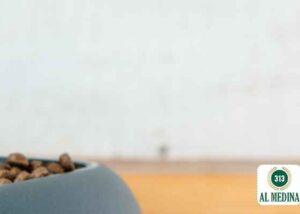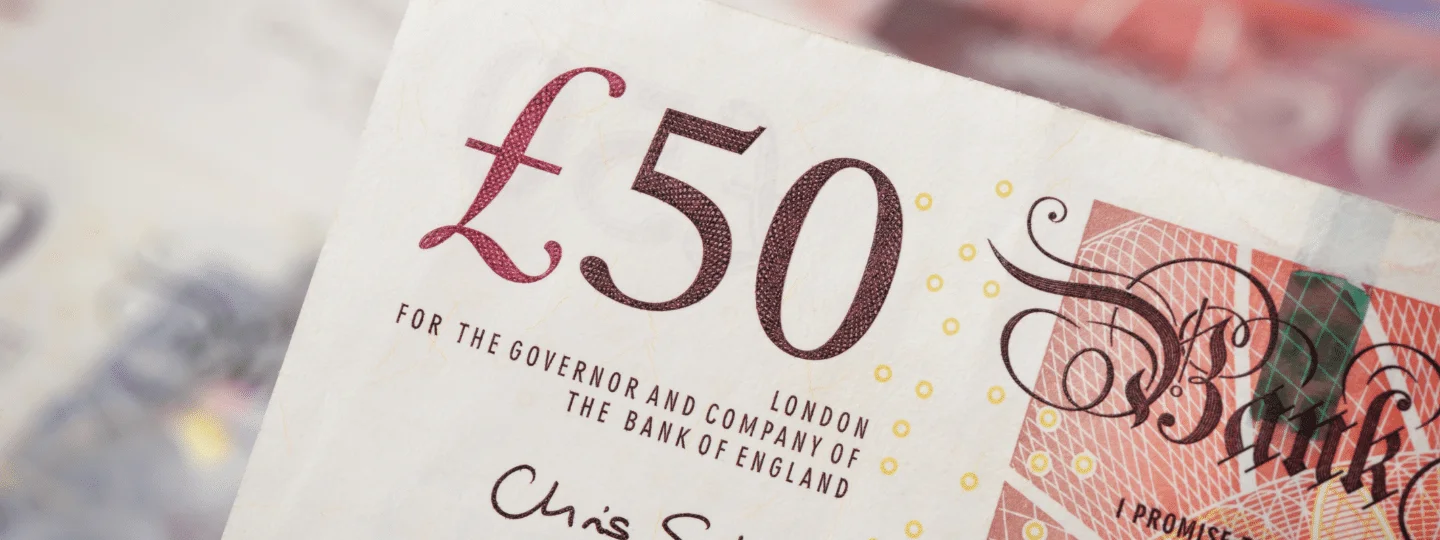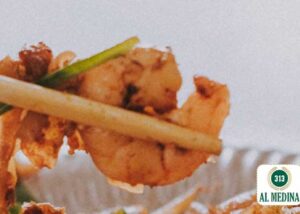Quran
Hadith
Islamic Text
It is permitted to use medicine with Haram ingredients if there is no alternative, and if a competent Muslim doctor informs you that it will help with your illness or ailment?
مَنْ كَفَرَ بِاللَّهِ مِنْ بَعْدِ إِيمَانِهِ إِلَّا مَنْ أُكْرِهَ وَقَلْبُهُ مُطْمَئِنٌّ بِالْإِيمَانِ وَلَكِنْ مَنْ شَرَحَ بِالْكُفْرِ صَدْرًا فَعَلَيْهِمْ غَضَبٌ مِنَ اللَّهِ وَلَهُمْ عَذَابٌ عَظِيمٌ
Whoever disbelieves in Allah after having faith, except for he who is forced whilst his heart is content with faith, but he who commits Kufr willingly, then the anger of Allah is upon them and for them is severe torment. (Surah al-Nahl, 106).
إِنَّمَا حَرَّمَ عَلَيْكُمُ الْمَيْتَةَ وَالدَّمَ وَلَحْمَ الْخِنْزِيرِ وَمَا أُهِلَّ بِهِ لِغَيْرِ اللَّهِ فَمَنِ اضْطُرَّ غَيْرَ بَاغٍ وَلَا عَادٍ فَلَا إِثْمَ عَلَيْهِ إِنَّ اللَّهَ غَفُورٌ رَحِيمٌ
Indeed, that which is forbidden for you (includes) carrion, blood, the flesh of swine and that which is slaughtered (in the name of) other than Allah. But whoever is compelled, not out of desire or excess, then there is no sin upon him. Indeed Allah is All-Forgiving, Most-Merciful. (Surah al-Baqarah, 173).
As seen in the Noble Verses of the Holy Quran, something that is prohibited can become permissible due to necessity. This is a well-established principle in the Sharia and has numerous Quranic verses and Prophetic Hadith supporting it.
However, this principle has been misused by many people. Therefore, we must stick to the methodology of Ahl al-Sunnah when applying it. As Sunni Muslims we refer to the four Madhaahib (Schools) of Fiqh when it comes to legal issues. Any Fatwa citing necessity must be justified by Nusoos (texts) from at least one of the four Madhaahib.
وَقَالَ فِي النِّهَايَةِ يَجُوزُ التَّدَاوِي بِالْمُحَرَّمِ كَالْخَمْرِ وَالْبَوْلِ إذَا أَخْبَرَهُ طَبِيبٌ مُسْلِمٌ أَنَّ فِيهِ شِفَاءً، وَلَمْ يَجِدْ غَيْرَهُ مِنْ الْمُبَاحِ مَا يَقُومُ مَقَامَهُ وَالْحُرْمَةُ تَرْتَفِعُ لِلضَّرُورَةِ فَلَمْ يَكُنْ مُتَدَاوِيًا بِالْحَرَامِ فَلَمْ يَتَنَاوَلْهُ حَدِيثُ ابْنِ مَسْعُودٍ، وَيَحْتَمِلُ أَنَّهُ قَالَهُ فِي دَاءٍ عُرِفَ لَهُ دَوَاءٌ غَيْرُ الْمُحَرَّمِ. (تبيين الحقائق شرح كنز الدقائق)
And he said in al-Nihaayah: It is permitted to use something (normally) forbidden like alcohol and urine for medical treatment if a Muslim doctor informs him that it is a cure. And (it is only permitted if) he does not find an alternative from that which is permitted. The prohibition is rescinded due to necessity. Therefore one will not (be guilty of) seeking treatment with the prohibited. Thus the Hadith of Ibn Mas’ud (May Allah Most High be pleased with him) will not be applicable. It is possible that he (Sayidina Abdullah bin Mas’ud) said it in relation to an illness which has a well-known cure from that which is not prohibited. (Imam al-Zayla’i, Tabyeen al-Haqaaiq).
In the Hanafi Madhab it is permitted to use something, which is normally prohibited, for medical necessities. One must confirm that there is no alternative prior to embarking upon such treatment. This ruling is due to the concept of legal necessity found in the verses above.
Having said this, it is important to note that there is some Ikhtilaaf (difference of opinion) within the Hanafi Madhab regarding this issue.
وَهَلْ يُبَاحُ الْإِرْضَاعُ بَعْدَ الْمُدَّةِ؟ فَقِيلَ لَا يُبَاحُ؛ لِأَنَّ إبَاحَتَهُ ضَرُورِيَّةٌ لِكَوْنِهِ جُزْءُ الْآدَمِيِّ. (الهداية في شرح بداية المبتدي)
وَأَهْلُ الطِّبِّ يُثْبِتُونَ لِلَبَنِ الْبِنْتِ أَيْ الَّذِي نَزَلَ بِسَبَبِ بِنْتٍ مُرْضِعَةٍ نَفْعًا لِوَجَعِ الْعَيْنِ. وَاخْتَلَفَ الْمَشَايِخُ فِيهِ، قِيلَ لَا يَجُوزُ، وَقِيلَ يَجُوزُ إذَا عُلِمَ أَنَّهُ يَزُولُ بِهِ الرَّمَدُ، وَلَا يَخْفَى أَنَّ حَقِيقَة الْعِلْمِ مُتَعَذِّرَةٌ فَالْمُرَادُ إذَا غَلَبَ عَلَى الظَّنِّ وَإِلَّا فَهُوَ مَعْنَى الْمَنْعِ. (فتح القدير).
Al-Hidaayah: Is breastfeeding permissible after the period? It was said: No, because it is a part of the human being, thus it is impermissible to utilise it, except in a case of necessity.
Fath al-Qadeer: The people of medicine affirmed that breastmilk caused by a breastfeeding girl is beneficial for eye pain. However, the scholars differed therein. Some said it is impermissible. Others said it is permissible if it is known that it will remove conjunctivitis (Ramad). It is clear that certain knowledge is not possible. Therefore, this refers to predominant judgement. Otherwise it remains prohibited. (Imam Ibn Humaam and Imam al-Marghinani, Fath al-Qadir).
Despite this difference of opinion the sound opinion in the Hanafi Madhab permits the use of something which is normally prohibited, for medical necessities. However, there are conditions that must be fulfilled. Amongst the conditions is the opinion of a credible Muslim physician. Meaning such a doctor must inform you that in his professional opinion this will cure the ailment you are suffering with.
وَلَبَنُ امْرَأَةٍ أَنَّ صَاحِبَ الْخَانِيَّةِ وَالنِّهَايَةِ اخْتَارَا جَوَازَهُ إنْ عَلِمَ أَنَّ فِيهِ شِفَاءً وَلَمْ يَجِدْ دَوَاءً غَيْرَهُ قَالَ فِي النِّهَايَةِ: وَفِي التَّهْذِيبِ يَجُوزُ لِلْعَلِيلِ شُرْبُ الْبَوْلِ وَالدَّمِ وَالْمَيْتَةِ لِلتَّدَاوِي إذَا أَخْبَرَهُ طَبِيبٌ مُسْلِمٌ أَنَّ فِيهِ شِفَاءَهُ وَلَمْ يَجِدْ مِنْ الْمُبَاحِ مَا يَقُومُ مَقَامَهُ. (رد المحتار على الدر المختار)
The authors of al-Khaniyah and al-Nihaayah considered breast milk to be permitted (for medical treatment) if he knowns that it contains a cure, and no alternative medication is found. He said, in al-Nihaayah: And in al-Tahdheeb (it states that), a sick person is permitted to drink urine, blood and carrion if a Muslim doctor informs him that within it is a cure and he did not find anything permissible to take its place. (Imam Ibn Abideen, Radd al-Muhtaar).
It is recognised that the opinion of a competent Muslim doctor cannot be taken as a matter of absolute fact, without any room for doubt. However, legal rulings are often based upon preponderant opinion.
لَكِنْ قَدْ عَلِمْت أَنَّ قَوْلَ الْأَطِبَّاءِ لَا يَحْصُلُ بِهِ الْعِلْمُ. وَالظَّاهِرُ أَنَّ التَّجْرِبَةَ يَحْصُلُ بِهَا غَلَبَةُ الظَّنِّ دُونَ الْيَقِينِ إلَّا أَنْ يُرِيدُوا بِالْعِلْمِ غَلَبَةَ الظَّنِّ وَهُوَ شَائِعٌ فِي كَلَامِهِمْ تَأَمَّلْ. (رد المحتار على الدر المختار)
However, you are aware that the opinion of physicians does not bring about (certain) knowledge. Rather it is apparent that through experimentation preponderance is attained not certainty. Unless they intend preponderance by their use of the word knowledge, which is common in their statements, so reflect. (Imam Ibn Abideen, Radd al-Muhtaar ala al-Durr al-Mukhtar).
Another condition is no alternative is that there is no alternative available, as seen in the Nusoos above. Some scholars mention the statement of the great Sahaabi Abdullah bin Mas’ud (May Allah be pleased with him) as an objection to the Hanafi position. This was addressed in Durar:
وَلَمْ يَجِدْ غَيْرَهُ مِنْ الْمُبَاحِ مَا يَقُومُ مَقَامَهُ وَالْحُرْمَةُ تَرْتَفِعُ لِلضَّرُورَةِ فَلَمْ يَكُنْ مُتَدَاوِيًا بِالْحَرَامِ فَلَمْ يَتَنَاوَلْهُ حَدِيثُ ابْنِ مَسْعُودٍ – رَضِيَ اللَّهُ عَنْهُ – أَنَّهُ – عَلَيْهِ السَّلَامُ – قَالَ «إنَّ اللَّهَ لَمْ يَجْعَلْ شِفَاءَكُمْ فِيمَا حَرَّمَ عَلَيْكُمْ». (درر الحكام)
And he did not find any other permissible alternative to take its place. The prohibition is rescinded due to necessity. Therefore, he was not (guilty of) treatment with that which is forbidden. Thus the Hadith of Ibn Mas’ud (May Allah be pleased with him) does not include him, where he peace be upon him said, ‘Indeed Allah has not placed a cure for you in that which has been prohibited for you.’ (Mulla Khusro, Durar al-Hukkaam).
He explained that ingredients that are normally prohibited become permitted due to necessity. Therefore, the statement is not applicable, since one is using Halal for cure and not Haram. Another explanation is that the statement of Sayidina Ibn Mas’ud (May Allah be pleased with him) is only applicable with another alternative is available. There are many other proofs to support the Hanafi position. However, I will suffice with this for now to avoid further lengthening this current answer.
And Allah Most High Knows Best.
-Answered by Shaykh Noorud-deen Rashid (13.06.2022)
– Special thanks to Sidi Yusuf Asghar for assisting with Nusoos translation
See also:
Is the hadith “seeking knowledge is an obligation upon every Muslim” authentic?
See also video:






